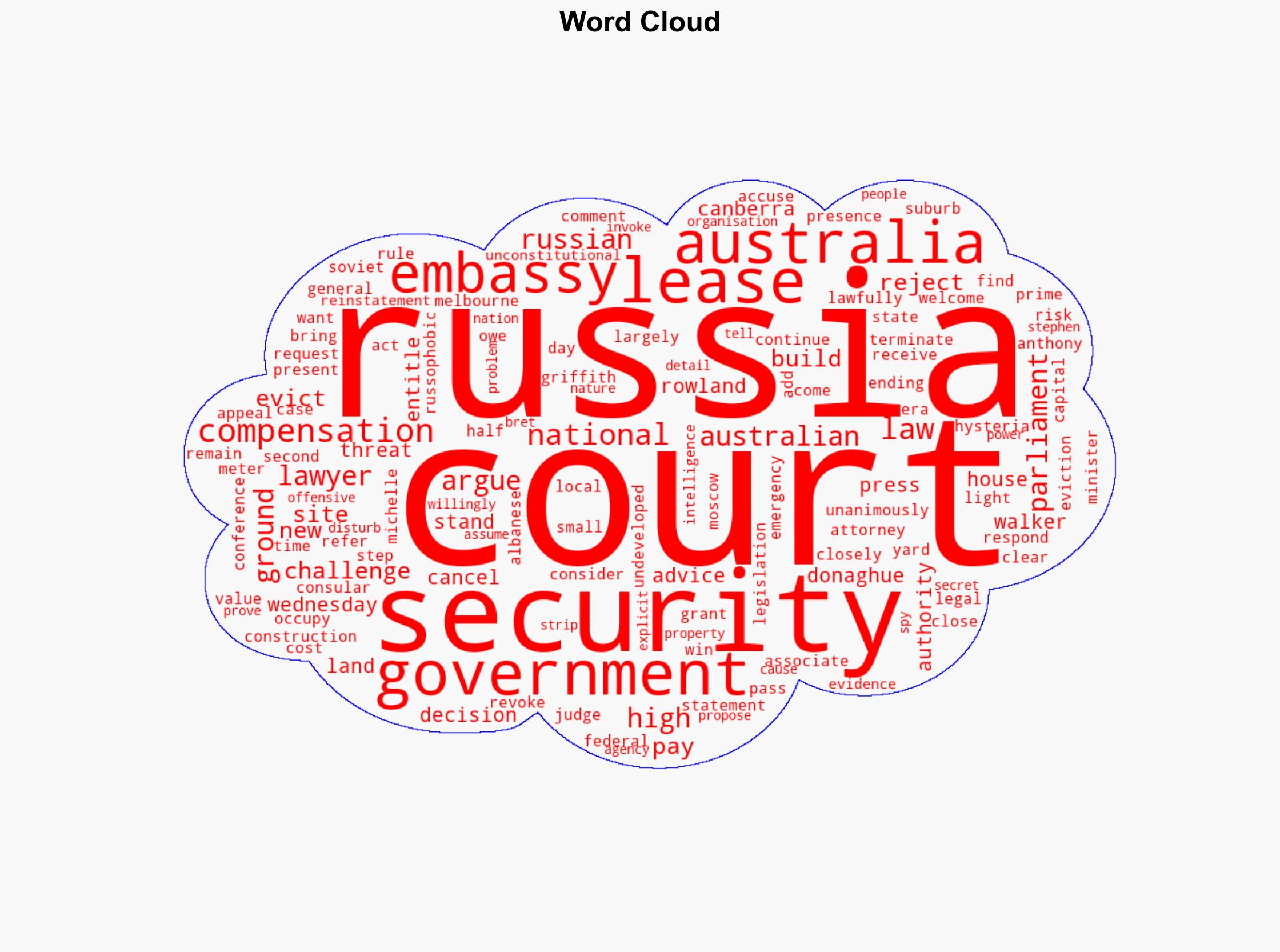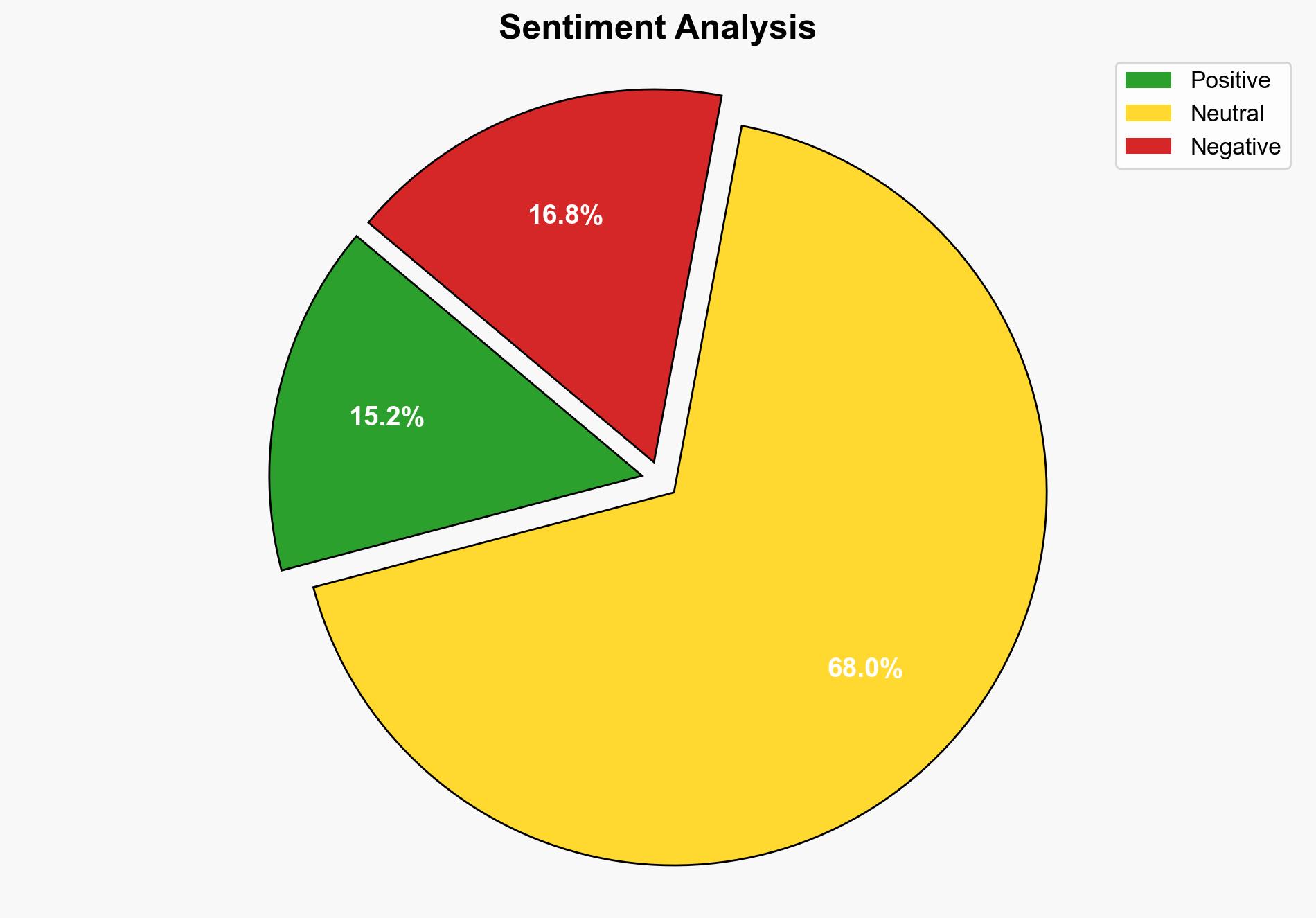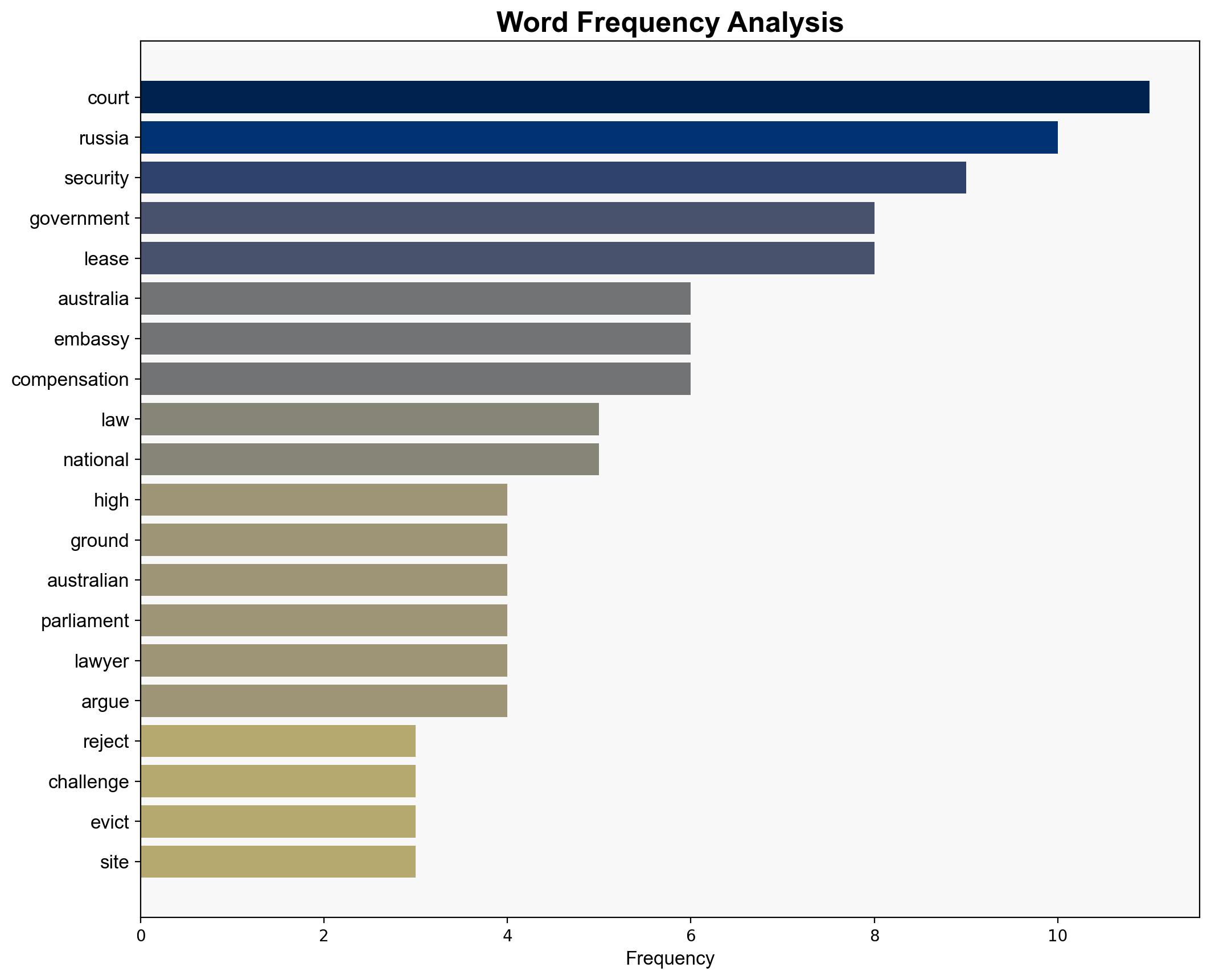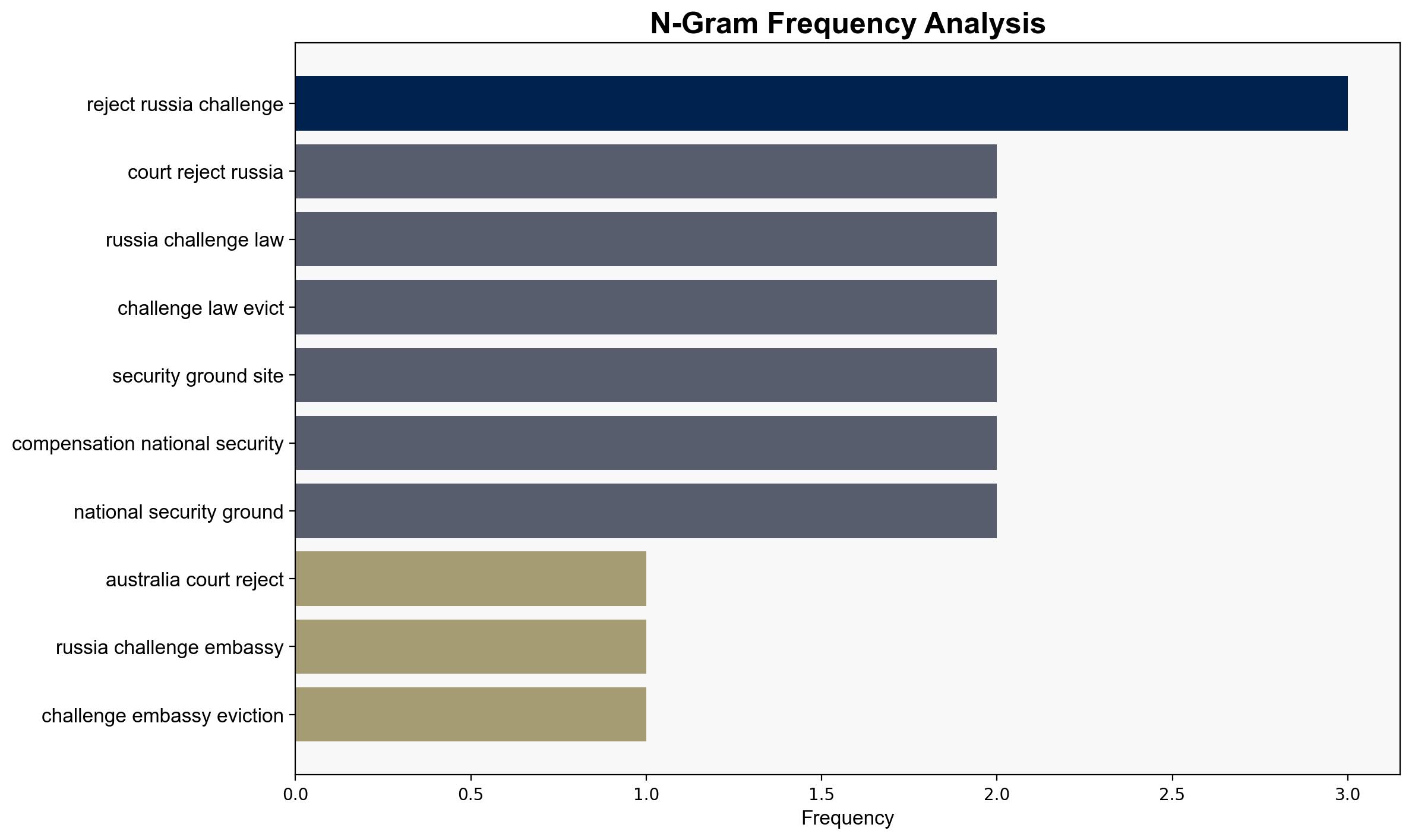Australia’s top court rejects Russia’s challenge to embassy eviction – ABC News
Published on: 2025-11-12
AI-powered OSINT brief from verified open sources. Automated NLP signal extraction with human verification. See our Methodology and Why WorldWideWatchers.
Intelligence Report: Australia’s top court rejects Russia’s challenge to embassy eviction – ABC News
1. BLUF (Bottom Line Up Front)
The Australian High Court’s decision to reject Russia’s challenge on the embassy eviction is a significant assertion of national security priorities over diplomatic relations. The most supported hypothesis is that Australia acted within its legal rights, prioritizing national security concerns. Confidence in this assessment is high. Recommended actions include monitoring potential retaliatory measures by Russia and reinforcing diplomatic channels to mitigate tensions.
2. Competing Hypotheses
Hypothesis 1: Australia’s eviction of Russia’s embassy was a necessary action based on credible national security threats, and the legal process was appropriately followed.
Hypothesis 2: The eviction is a politically motivated action by Australia, leveraging national security as a pretext to limit Russian influence near its parliamentary precinct.
Hypothesis 1 is more likely due to the unanimous court ruling and the government’s reliance on security advice from the Australian Security Intelligence Organisation. The lack of public evidence supporting a specific threat introduces some uncertainty, but the legal and procedural rigor suggests a legitimate security concern.
3. Key Assumptions and Red Flags
Assumptions: The Australian government has credible intelligence justifying the eviction. The legal process was transparent and unbiased.
Red Flags: The secrecy surrounding the security advice could mask less tangible motivations, such as political pressure or strategic posturing.
Deception Indicators: Russia’s accusations of “Russophobic hysteria” may be an attempt to deflect from legitimate security concerns.
4. Implications and Strategic Risks
The decision could escalate diplomatic tensions between Australia and Russia, potentially leading to retaliatory measures such as cyber operations, economic sanctions, or increased espionage activities. The situation could also influence Australia’s relations with other countries, particularly those with significant Russian ties.
5. Recommendations and Outlook
- Enhance cybersecurity measures to preempt potential Russian cyber retaliation.
- Engage in diplomatic dialogue with Russia to clarify intentions and reduce tensions.
- Best-case scenario: The situation de-escalates with no further actions from Russia, maintaining diplomatic stability.
- Worst-case scenario: Russia retaliates through cyber attacks or diplomatic expulsions, straining bilateral relations.
- Most-likely scenario: Limited diplomatic fallout with increased vigilance and security measures by Australia.
6. Key Individuals and Entities
Michelle Rowland (Australian Attorney General), Anthony Albanese (Australian Prime Minister), Bret Walker (Russian lawyer), Stephen Donaghue (Australian government lawyer).
7. Thematic Tags
National Security Threats
Structured Analytic Techniques Applied
- Cognitive Bias Stress Test: Expose and correct potential biases in assessments through red-teaming and structured challenge.
- Bayesian Scenario Modeling: Use probabilistic forecasting for conflict trajectories or escalation likelihood.
- Network Influence Mapping: Map relationships between state and non-state actors for impact estimation.
Explore more:
National Security Threats Briefs ·
Daily Summary ·
Methodology





